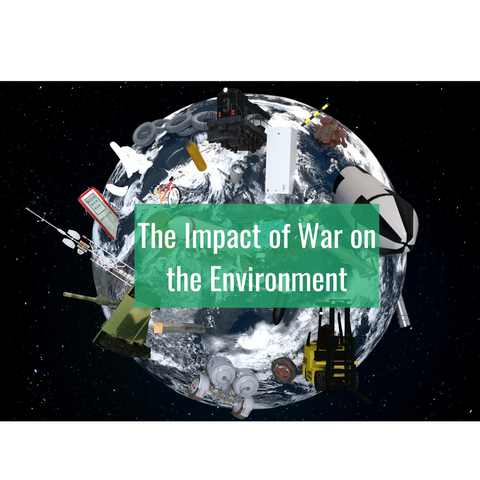My shopping cart
Your cart is currently empty.
Continue Shopping
Also known as “a state of armed conflict between different nations or states or different groups within a nation or state”.
It’s never easy to think, write or read about war. Everything about it is wrong and heartbreaking. Sadly, violent behavior has been a part of our history for thousands of years and I am deeply ashamed, as a human being, that it will most likely continue being so. Looking back, we’ve seen the evil lengths we’re capable of reaching toward each other, completely disregarding the value of life in so many unspeakable ways.
On a larger scale, as we evolved, so did the technology and methods to achieve desired goals. Whether territorial, political or religious. The difference now lies in the extent of the consequences war brings, for it does not only fall upon us but on our entire planet. It has gotten to the extreme point where we are capable to destroy almost all life on earth if we wanted.
It’s of the utmost importance to be aware of the severity of the negative impact of war on the environment, as long as we as a civilization have the power to prevent it, however, we can.
Starting with the simple existence of military forces worldwide, a vast amount of natural resources are focused on building and sustaining them. The pollution and carbon dioxide released from the largest militaries in the world (military vehicles, infrastructures, aircrafts, vessels, and all assets/activities involved in preparation before conflict) is greater than the overall release of many of the world’s countries combined!
During conflicts, the destruction of forests and natural habitats are among the first victims that come to mind. Deforestation has a direct and long-term impact on climate change, biodiversity, and the ecosystem, resulting in the extinction of many animal and plant species in affected areas. Besides the common collateral damage that results in major wildfires, there have been cases (e.g.The War of Vietnam ) where direct bombing with Napalm to destroy resources, forest cover, and crops was used for several years. This intentional destruction, paired with the use of chemical weapons, destroyed close to half a billion acres. As if it wasn’t enough, the powerful herbicide used makes it nearly impossible for reforestation to occur. Such atrocities always deal a huge blow to nature, leaving a huge scar on the planet along with it.
The contamination of water and soil goes hand to hand with war efforts. Across the globe, traces of perchlorate and other harmful chemicals can be found in groundwater sources near production sites of weaponries. At the other end of the spectrum, as an example, the destruction of specific infrastructures, from nuclear plants to wastewater treatment plants, represents the worst possible indirect collateral/targeted damage that can be applied, as nothing leaves unscathed by it. In Croatia, during the 1990s war, one of these facilities was destroyed. The bombing of these facilities lead to toxins flowing downstream and all over the place in an unchecked manner until the conflict ended!
All of these problems earth has already suffered at our hands might not have affected most of us directly, but when we think of the overall intentional damage and long term effects we’re causing as a species, it’s safe to say that this is another matter where ignorance is not a bliss anymore!
Over the next approach on this topic, we will find out why Albert Einstein said that the Third World War will be fought with sticks and stones. Recent events call even more for our attention, as the world watches the results of years of development regarding destruction tools, right here in Europe.
Awareness is the key and the first step to try and do our best, as always, to help protect our Home!